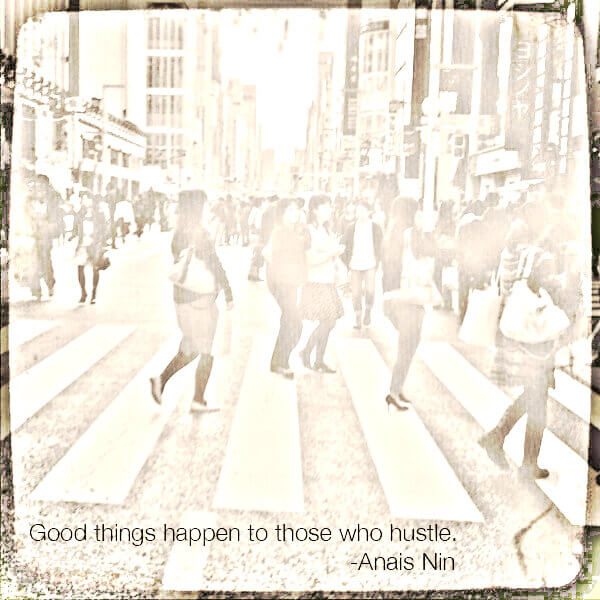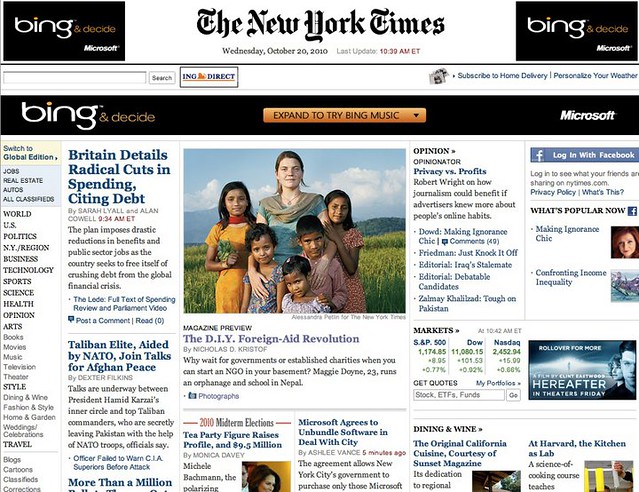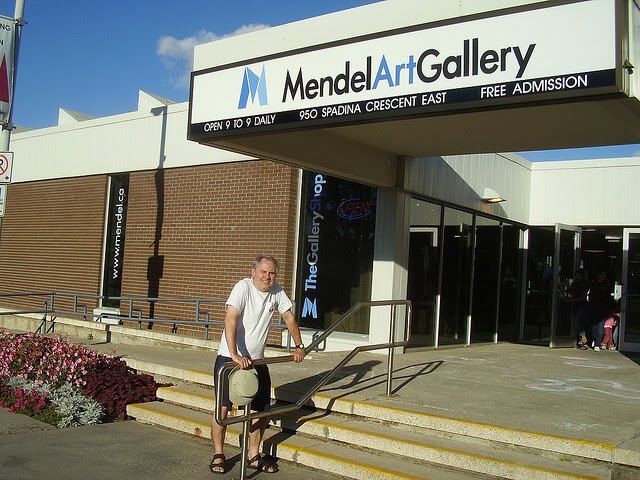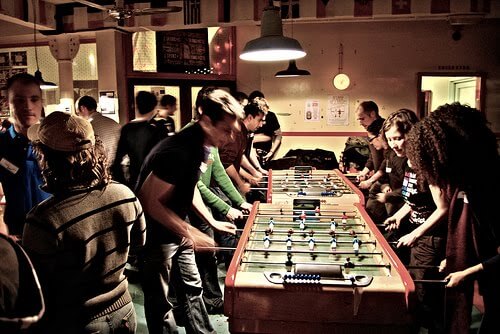I am mildly annoyed by Globe and Mail writer Russell Smith's latest column,
Note to Canadian Writers: Stop Tweeting, Start Writing
for a bunch of reasons:
- The title of his piece is click bait at its most obvious - controversial just for the sake of it, not because he has anything particularly enlightening to add to the conversation.
- He's used my friend Dianne's picture at the top of his post, which infers that she somehow shares his perspective. Dianne doesn't Tweet or Facebook, but I suspect that her reasons for not doing so are quite a bit more thoughtful and considerate than the ones Smith presents. Also, Dianne did do an extensive 'blog tour' of her book when it first came out, which is pretty social media clued-in. I don't like that he associated his column with her just because she doesn't tweet (but note: I don't speak for Dianne in any way here).
- The column doesn't say anything valuable or new and offers no indication that he's done even a tiny bit of research to back up his assertions.
It's not so much the basic premise of his assertions that bugs me (although some do) as the condescending tone and implication with which he tries to make his point. You can read the article yourself, but here are the basics:
Publishers are increasingly putting the responsibility of self-promotion on writers because they believe that writers with a greater profile and relationship with an audience might sell more books.
I'm sure this is true and there and it makes pretty good sense. Canada isn't unique in the reality that the arts are underfunded, that old publishing models aren't making money anymore, that large bookstores have taken the place of small local shops (which means they buy huge quantities of books in bulk to sell cheaply - and everyone on the food chain makes less money) and with the advent of digital technologies such as E-Readers, the entire trade is changing much like it did in the music industry when MP3s first became popular.
Writers, even writers with award winning books, usually can't make a good living off of writing. They can teach, take on freelancing writing gigs to supplement their income, give talks, act as consultants ... but they generally can't make a living off of writing alone - this is especially true of short story writers and poets. I wonder how many writers in Canada can actually say, "I live off of my writing alone to a standard where I'm not worried about paying the bills and have some money in a savings account". Probably not many. Even Dave Eggers, who Smith refers to as an impresario of self-branding, runs a range of businesses to make ends meet and by his own estimation, is still pretty broke. In a March 2010 interview with
The Guardian Eggers says, "Vendela [his wife, author and editor of one of their publications] doesn't get paid. If we are genius tastemakers we wouldn't be running this broke company. I mean, we're not going to fold any time soon but I wish we were what you say." Dave Eggers was on the New York Times Bestseller list and was a finalist for a Pulitzer for
A Heart Breaking Work of Staggering Genius

. Dave Eggers is not living off his writing.
Smith writes for The Globe and Mail, which is itself still figuring out how to monetize in a new world that wants its content online and wants it free. Despite this, surely even he realizes that traditional modes of promoting the work of writers are not as relevant anymore. Print advertising is dead, the new mega book store is really only interested in promoting the latest bestseller by big names like Stephen King or Nicholas Sparks and fewer people have cable or listen to radio because they get to pick and choose what they want to listen to online. Pretty or not, social media is increasingly a place where people get their content and where they find interesting links to books, authors or music to check out. It is one of the only surefire places left to reach potential consumers.
Publishers increasingly want writers to do some of the marketing legwork on Twitter and Facebook. This could be because they are lazy or underfunded, or it could be because they understand the medium and know that people are less interested in receiving marketing tweets from a monolithic, impersonal publishing house than from the unique, individual voices of the artists themselves. I probably wouldn't pay attention to tweets by Random House but I would definitely want to hear more from any number of its writers. Russell Smith might not realize this. When looking at the
Twitter feed for the online men's magazine he co-founded, The DailyXY, it's obvious that whoever is managing it thinks that Twitter is for broadcasting, not for conversations. Captain, we have a problem.
Unpublished writers in particular are taking this advice from publishers to heart and are spending time building up a following even before they have a book deal, in some cases, even before they have a book.
If you want write a novel, it probably won't pay off to spend all your time on Twitter or Facebook. But does he think writers, even the great unwashed, unpaid and unpublished, are stupid? The people who are really serious about writing will find time to write, whether they are doing it while Tweeting, Facebooking, working two full time jobs or raising a family. It's always been this way and will always be so. Others will have all the time in the universe and will never get down to business. Participating in self-promotion via social media and the act of producing brilliant writing are not mutually exclusive.
Given how hard it is to get an agent and a publishing deal even with a range of great work in your wake, many young writers likely see self-promotion as one way they are able to potentially by-pass the traditional publishing bureaucracy. Self-publishing has come a long way and although it will certainly result in a lot more junk than you get through the traditional system with all of its gatekeepers and mediators (though anyone who's read a Harlequin or a Danielle Steele novel may disagree with me), there are occasionally big successes through alternative modes of publishing. Although now published by HarperVoyager, Canadian writer (now residing in the UK)
Cory Doctorow has seen huge success through self-publishing and making his work available using the Internet. Even now, with a big publisher backing him, Doctorow releases free e-book versions of his work and encourages people to repurpose his content for educational or artistic uses.
In the non-fiction world there are lots of examples of people who have built up a relationship with followers using social media tools and then have gone on to sell a book to a publisher that has seen huge sales. Gretchen Rubin of
The Happiness Project

and Gary Vaynerchuk's
Crush It

are two examples from the last year that have been on the New YorkTimes Bestseller List.
Many writers who are signed with publishers will tell you that when their book comes out, there is almost no attention given to marketing or promoting it. Just because a publisher signs you, does not mean they are going to invest any money in making your book a success. If you're someone who has the inclination to take on social media so that you are not completely at the mercy of other people to see your book properly marketed, I think that's great. And it doesn't have to happen at the expense of your writing.
Canadian bestsellers are determined by prize juries (like the Giller and Governor General's awards) and many of the writers who win these awards have not been participants in self-promotion using social media.
Yep, probably true. But let's be honest, as much as they are talented and deserving, the writers who have won the prestigious awards are lucky. Fucking lucky! There are plenty of really wonderful books out there that will never win an award because awards are based on a jury system and juries are a crap shoot. Do you want to base your future success on roulette?
For five years I worked for an arts funding agency in Saskatchewan and for some of that time I handled the administration of grants. I organized applications, I sat in on juries, I recorded their findings and I found that the results varied wildly depending on the composition of the jury. An application could come before one jury and it would be criticized and ranked incredibly low, six months later the exact same application would be put before a different jury and would be lauded and receive funding. Unfortunately, writers hoping for a big literary prize have it even harder because their book will only go before each jury one time - there is no re-submitting it to a different set of jurors a few months later.
Jurors are human beings and even with strict adjudication criteria as their framework, they bring their own set of biases to the table. I think it's an intelligent writer who decides to not put all her eggs into that one extremely unreliable basket. Telling a writer to replace self-promotion with hoping for a high profile prize is like telling someone to quit their job in the hope of winning the lottery. It's stupid advice.
Self-promotion won't make any difference to the success of your book so just focus on writing a good book and hope for the best.
If this were just about telling people who wish to become writers that they should write first for love because it's highly unlikely that they will ever make a living from the sales of their books, I wouldn't disagree. People who are driven to write because they believe that they are going to be the next JK Rowling are sentencing themselves to a path of disappointment and likely poverty. First off, write because you love it and accept that you'll be lucky to get paid.
But Smith's column is all about book sales not about the motivation to write. He says that writers should "stop wasting their time on self-promotion because it has not been proven to make any difference whatsoever to one's sales." Smith's proof? His research? Well, if he's done any, he doesn't mention it.
I would love to see formal research done to really examine what the impact of social media promotion is on book sales, but I suspect it would be difficult because unlike the centralized model of traditional book marketing and publishing, social media is all over the place. It exists on blogs that are all created on different platforms, twitter accounts, Facebook, Tumblr memes and reblogs ... It isn't neat and tidy, which makes it an easy target for someone like Smith who seems to have discounted these tools just for the sake of being contrary.
Despite the lack of hard evidence, there are lots of anecdotal examples of how social media has helped sell books. Last month
Edan Lepucki released her novella called
You're Not Yet Like Me via a teeny publisher called
Flatmancrooked. Many people 'know' Edan by following her
Tumblr, which is only writerly in that she occasionally talks about books and literary things but mostly it is just about little daily happenings in her life. I suspect that a lot of us found her blog because she writes for
The Millions, a popular online literary journal. The Millions does not come out in hard copy print and promotes itself mostly via social media channels yet they have thousands of visitors and actually pay money to real published writers - like Emily St. John Mendel who wrote the critically lauded piece of Canadian fiction
Last Night in Montreal

- to contribute interesting criticism and reviews. I wonder whether Smith's social media bias is applicable to publications like The Millions - are they wasting their time with social media despite the fact that it has enabled to them publish literary content that some might argue is more arresting and unique then what's published in papers like The Globe and Mail? As traditional, stodgy literary journals falter, the web and social media has enabled a bit of a
renaissance of literary criticism and online journals that publish new work - for the first time in a long while, people (under the age of 40!) are excited about reading work by new authors and are engaging with literature in a critical way.
Back to Edan. Is her novella on the New York Times bestseller list? No, but why should aspiring to sit at the head of old school hierarchies be the only yardstick for measuring success? Using social media, Flatmancrooked and Edan sold out the first edition of 400 copies of her book in only a few days. They did this by Tweeting, Facebooking, blogging, Tumbling and by promoting the book using a movie-trailer style video uploaded to Youtube. DIY culture is back baby and it applies to more than knitting socks.
I doubt that the sales of Edan's novella are making anyone rich, but they've helped to fund a small independent press, have given Edan some monetary compensation for her time (more than many writers receive) and if you consider that these books were not created with the philosophy of mass production but instead with the principals of "low run, high quality collectibles" at heart, I would say that social media has helped to make Edan's little novella a smashing success.
If you tweet or twit, you aren't smart enough to write.
The above was one of the comments left on Smith's article and I think it sums up my biggest problem with the entire premise - although Smith isn't as obvious as the anonymous commenter, his underlying message is that writers who are self-promoting on social media are somehow less serious.
Social media has taken down some of the barriers that used to exist between artistic producers and consumers. Although there is still a role for the traditional gatekeepers of the publishing industry, increasingly that industry is being forced to work out how to remain relevant as a generation of people who have never known life without the Internet begin to force changes to this decades old model. Change makes people feel uncomfortable - particularly the self-appointed arbiters of taste who find themselves increasingly irrelevant to a world filled with people that continue to put greater emphasis on trusting people with a connection - even a tenuous one via social media - instead of so-called expert critics.
People like Smith can continue to preach the luddite view that social media is a waste of time but he's really only talking to other luddites who are feeling just as threatened about their role in the new publishing economy. The establishment has an interest in protecting its boundaries and one way of doing this is by trying to make the people who feel like they can do it themselves feel lesser.
Meanwhile, people like Edan Lepucki know better and are quietly building their careers outside of the system using social media. I'm sure the goal is still to someday win the lottery, but like my grandmother always told me - clever people always have a plan b. For artists with talent and drive, social media isn't a bad place to start.





















.png)
.png)
.png)
.png)









